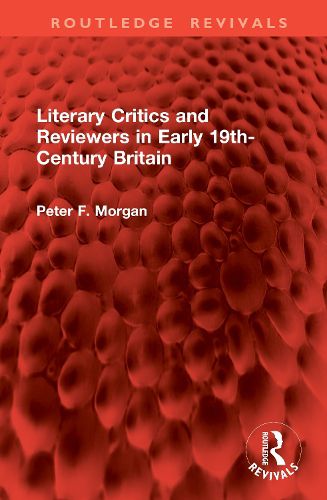The nineteenth century saw the growth of several major magazines devoted to the reviewing of contemporary literature. The new popular importance that literature was beginning to enjoy-in particular, the novel form-inevitably led to a change in the way literature was discussed and perceived.
Three of the major reviews of the period that reflected this new outlook are discussed in Literary Critics and Reviewers in Early 19th-Century Britain (originally published in 1983)-the Whig Edinburgh Review, founded in 1804; the Quarterly Review, the government counterblast begun five years later; and the Westminster Review, the radical paper first instituted in 1824. Each of these received contributions from major writers themselves such as Carlyle, Macaulay, Scott, Southey, and Mill. These, together with Jeffrey, Lockhart, and Croker form the main subject of this book. By examining the work of each writer, the author conveys a sense of the richness and variety of the field.
The criticism examined is important intrinsically, but also it is seen in the context of the philosophy and personality of the individual critic, and his important role, in the review especially, as mediating between literature and the reading public.





